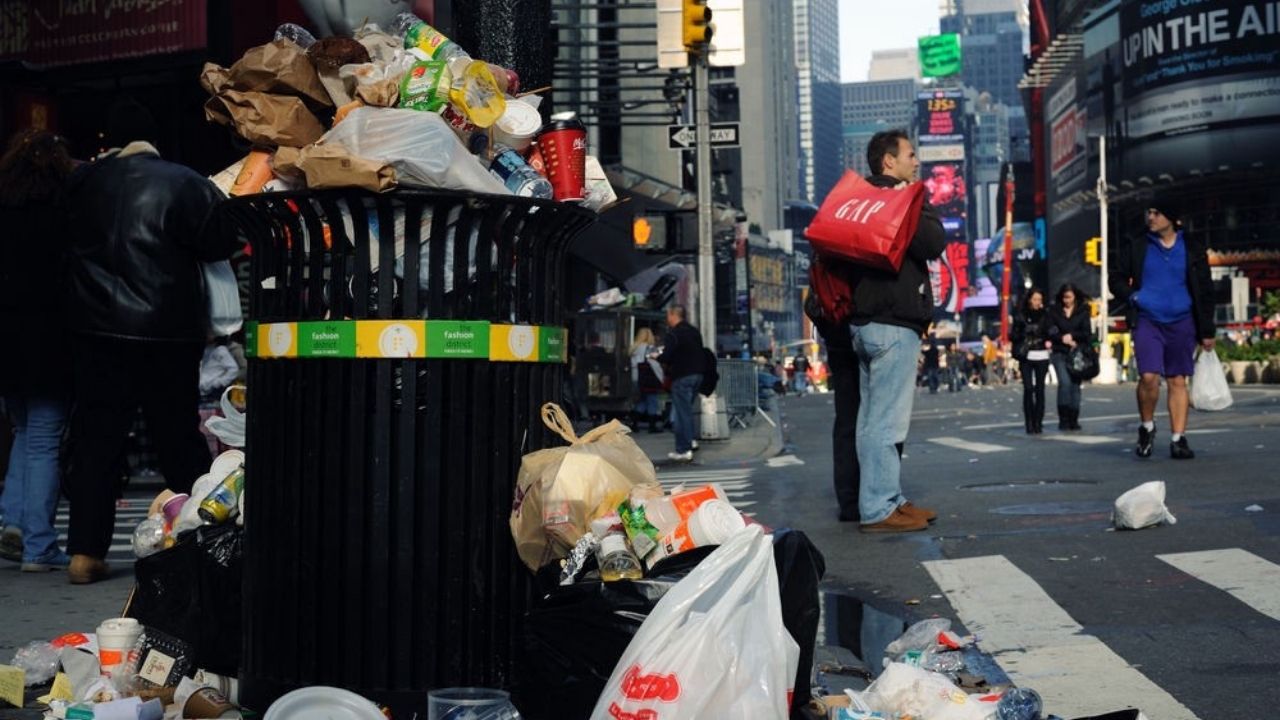 |
| Symbolic image |
The United States is the world's largest plastic polluter: The United States, the world's largest contributor to global plastic waste, has called for a national strategy to tackle the growing crisis, according to a new report submitted to the federal government on Wednesday.
Overall, the United States contributed about 42 million metric tons (MMT) to plastic waste in 2016 - more than double that of China and more than that of the European Union, according to the analysis.
On average, each American produces 130 kilograms (286 pounds) of plastic waste per year, with South Korea next to 88 kilograms per year.
Entitled "US Role in Reckoning of Plastic Waste in Global Oceans," the report was made mandatory by Congress as part of the Save Our Seas 2.0 Act, which became law in December 2020.
"The success of the miraculous discovery of plastic in the 20th century has led to the creation of a worldwide plastic of plastic waste everywhere we look," wrote Margaret Spring, who chaired the committee of experts compiling the report.
Global plastic production increased from 20 million metric tons in 1966 to 381 MMT in 2015, a 20-fold increase in half a century, the report said.
Initially, the focus on marine waste was focused only on ships and marine-based sources, but now it is known that almost any plastic on land has the potential to reach the oceans through rivers and streams, the report added.
Studies have shown that about a thousand species of marine animals are susceptible to plastic packs or microplastics, which return to humans through food nets.
The report states that approximately 8 MMT of plastic waste enters the world each year, "the equivalent of throwing a garbage truck of plastic waste into the sea every minute."
At current rates, the amount of plastic released into the sea could reach 53 mmt per year by 2030, which is about half of the total weight of fish caught from the sea per year, it says.
Part of the reason is when the municipality's solid waste plastic waste production has exploded, especially since 1980, when recycling scales were not kept, resulting in more and more plastics finding their way into landfills.
The report proposes a number of measures to address the crisis - in particular the reduction of virgin plastic production.
Other proposed activities include the use of materials that degrade faster and are more easily recycled, reducing specific single-use plastics, and improved waste management, such as microplastic removal strategies from wastewater.
Improvements in waste capture technology will eliminate plastics in waterways while disposing of plastics directly at sea is also a priority.
"This is the most comprehensive and disgraceful report ever published on plastic pollution," said Judith Enk, president of Beyond Plastics, a non-profit organization.
"It's a code red for plastics at sea and documenting how cleaning up the garbage isn't going to save the sea," he continued, adding that policymakers and business leaders need to read the report and take action.

0 Comments
We welcome relevant, respectful comments. Any comments that are sexist or in any other way deemed hateful by our staff will be deleted and constitute grounds for a ban from posting on the site.